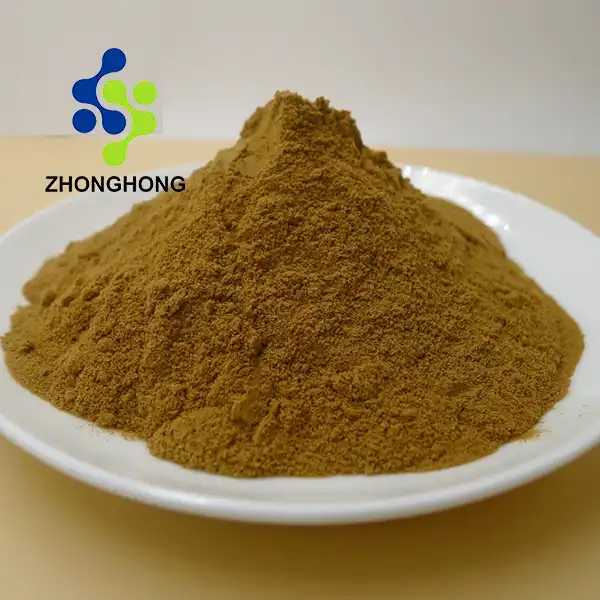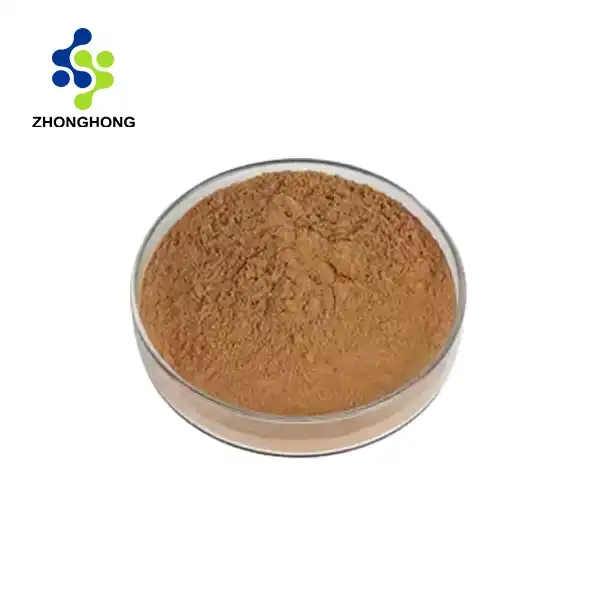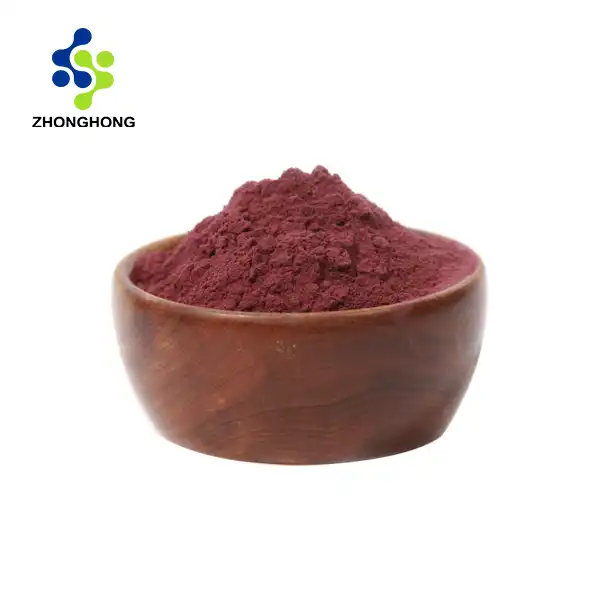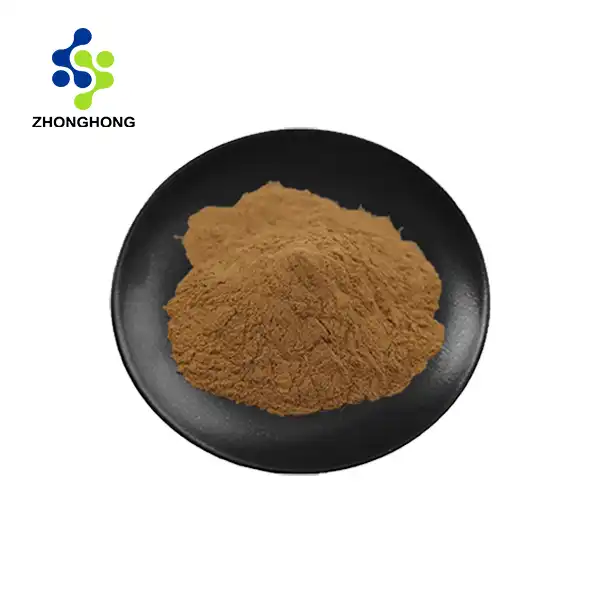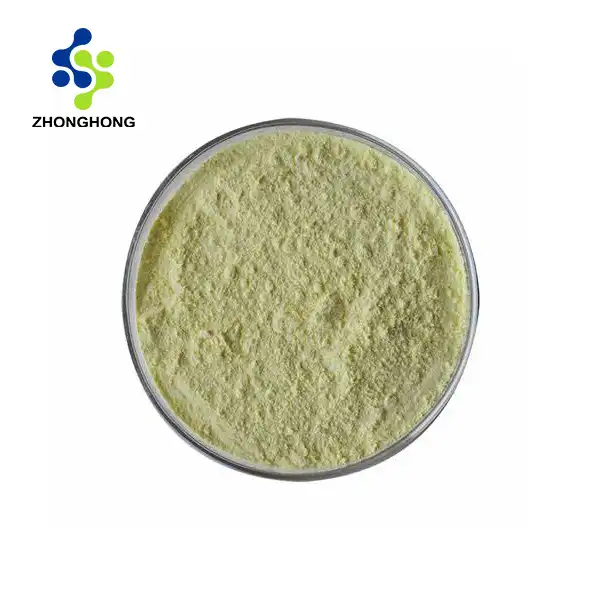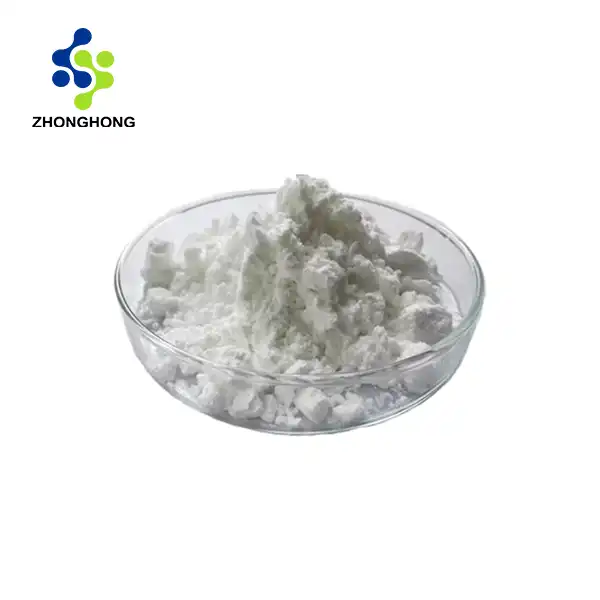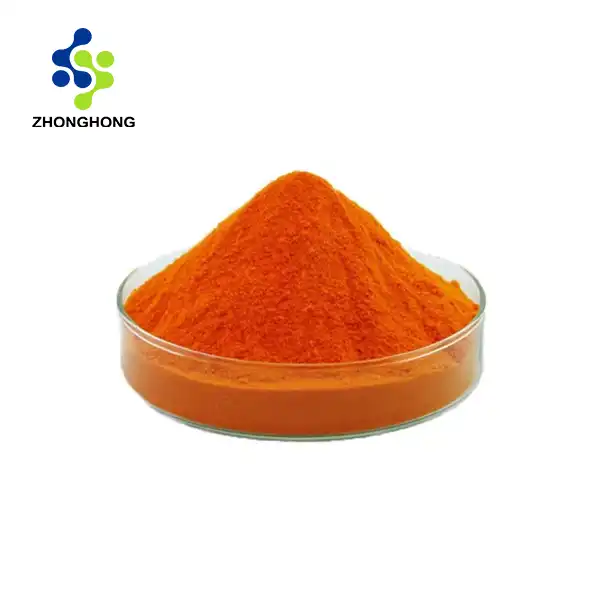Rhodiola Rosea for Stress and Anxiety
2024-12-02 20:45:50
In today's fast-paced world, stress and anxiety have become all too common, affecting millions of people worldwide. As we seek natural solutions to combat these mental health challenges, Rhodiola rosea has emerged as a promising herbal remedy. This adaptogenic plant, native to the cold, mountainous regions of Europe and Asia, has been used for centuries in traditional medicine to enhance physical and mental resilience. In this comprehensive guide, we'll explore how Rhodiola rosea can help alleviate stress and anxiety, its role in promoting mental wellness, and introduce you to other stress-reducing herbs. Whether you're dealing with everyday stressors or looking to boost your overall well-being, understanding the potential benefits of Rhodiola rosea could be a game-changer in your quest for better mental health.
How Rhodiola Helps Reduce Anxiety?
The Science Behind Rhodiola's Anxiolytic Properties
Rhodiola rosea, often referred to as "golden root" or "arctic root," has gained significant attention in the scientific community for its potential anxiolytic (anti-anxiety) effects. The plant's ability to reduce anxiety is attributed to its unique composition of bioactive compounds, particularly rosavin and salidroside. These compounds are believed to interact with the body's stress response system, helping to modulate cortisol levels and promote a sense of calm. Research has shown that Rhodiola may influence neurotransmitter activity in the brain, particularly serotonin and dopamine. These neurotransmitters play crucial roles in mood regulation and emotional well-being. By optimizing their balance, Rhodiola rosea extract may help alleviate symptoms of anxiety and promote a more positive mental state.
Clinical Studies on Rhodiola and Anxiety
Several clinical studies have investigated the efficacy of Rhodiola rosea in managing anxiety symptoms. A notable study published in the Journal of Alternative and Complementary Medicine found that participants who took Rhodiola extract for 10 weeks experienced significant reductions in symptoms of generalized anxiety disorder compared to those who received a placebo. Another study focused on individuals with stress-related fatigue syndrome. Participants who received Rhodiola rosea root extract reported improvements in anxiety levels, mood, and overall quality of life. These findings suggest that Rhodiola may be particularly beneficial for those experiencing anxiety as a result of chronic stress or burnout.
Mechanisms of Action in Anxiety Reduction
The anxiety-reducing effects of Rhodiola rosea are believed to stem from its adaptogenic properties. Adaptogens are substances that help the body adapt to stress and maintain homeostasis. In the case of Rhodiola, it appears to work by:
- Regulating the hypothalamic-pituitary-adrenal (HPA) axis, which is responsible for the body's stress response
- Enhancing the production of neuropeptide Y, a compound that helps reduce anxiety and promote relaxation
- Improving cellular energy metabolism, which may contribute to increased resilience to stress
- Modulating the release of stress hormones like cortisol, helping to prevent the physiological manifestations of anxiety
These mechanisms collectively contribute to Rhodiola's potential as a natural anxiolytic agent, offering a holistic approach to anxiety management without the side effects often associated with conventional anti-anxiety medications.
The Role of Rhodiola in Mental Wellness
Cognitive Function Enhancement
Beyond its anxiolytic properties, Rhodiola rosea has shown promising effects on cognitive function. The herb's ability to enhance mental performance is particularly noteworthy in our cognitively demanding modern world. Rhodiola rosea extract powder has been associated with improvements in various aspects of cognitive function, including:
- Memory: Studies suggest that Rhodiola may enhance both short-term and long-term memory, potentially benefiting students and professionals alike.
- Focus and Concentration: Users of Rhodiola often report increased ability to concentrate on tasks for extended periods.
- Mental Clarity: The herb is believed to help reduce mental fog and promote clearer thinking.
- Processing Speed: Some research indicates that Rhodiola may improve the speed at which the brain processes information.
These cognitive benefits are thought to be related to Rhodiola's ability to increase blood flow to the brain and its neuroprotective properties, which may help preserve brain health over time.
Mood Regulation and Depression Management
While Rhodiola is primarily known for its effects on stress and anxiety, its impact on mood regulation and potential role in managing depressive symptoms should not be overlooked. Several studies have explored Rhodiola's antidepressant-like effects, with promising results:
- A clinical trial published in the Nordic Journal of Psychiatry found that patients with mild to moderate depression who took Rhodiola extract showed significant improvements in overall depression, insomnia, and emotional stability.
- Another study suggested that Rhodiola may be as effective as some conventional antidepressants but with fewer side effects.
- The herb's ability to modulate neurotransmitters like serotonin and norepinephrine is believed to contribute to its mood-enhancing effects.
It's important to note that while these findings are encouraging, Rhodiola should not be considered a replacement for professional medical treatment for depression. Always consult with a healthcare provider before using any herbal supplement for mental health concerns.
Stress Resilience and Adaptogenic Properties
At the core of Rhodiola's benefits for mental wellness is its classification as an adaptogen. Adaptogens are a unique class of herbs that help the body resist stressors of all kinds, whether physical, chemical, or biological. Rhodiola's adaptogenic properties contribute to overall mental wellness in several ways:
- Stress Buffer: Rhodiola helps the body maintain balance in the face of various stressors, potentially preventing the negative impacts of chronic stress on mental health.
- Energy Regulation: By supporting cellular energy production, Rhodiola may help combat fatigue and maintain mental vitality throughout the day.
- Hormonal Balance: The herb is believed to help regulate cortisol levels, which can have a significant impact on mood and stress responses.
- Neuroplasticity Support: Some research suggests that Rhodiola may support neuroplasticity, the brain's ability to form new neural connections, which is crucial for learning, memory, and overall cognitive health.
By enhancing the body's resilience to stress and supporting overall brain function, Rhodiola rosea plays a multifaceted role in promoting mental wellness. Its potential to improve cognitive function, regulate mood, and increase stress resilience makes it a valuable tool in the pursuit of optimal mental health.
Stress-Reducing Herbs You Should Know
Ashwagandha: The Ancient Ayurvedic Stress-Buster
Ashwagandha, also known as Withania somnifera, is a powerful adaptogenic herb that has been used in Ayurvedic medicine for thousands of years. Like Rhodiola, ashwagandha is renowned for its stress-reducing properties and ability to promote overall well-being. Some key benefits of ashwagandha include:
- Stress and Anxiety Reduction: Clinical studies have shown that ashwagandha can significantly reduce cortisol levels and symptoms of stress and anxiety.
- Improved Sleep Quality: The herb may help improve sleep patterns and combat insomnia, which is often associated with stress.
- Enhanced Cognitive Function: Some research suggests that ashwagandha may improve memory, reaction time, and task performance.
- Mood Stabilization: Regular use of ashwagandha has been linked to improved mood and reduced symptoms of depression.
Ashwagandha can be taken in various forms, including powders, capsules, and tinctures. Its synergistic effects with Rhodiola rosea powder make it a popular choice for those seeking comprehensive stress management solutions.
Lemon Balm: The Calming Herb
Lemon balm (Melissa officinalis) is a member of the mint family and has been used for centuries to promote relaxation and reduce stress. This herb is particularly known for its gentle calming effects and is often used to address mild anxiety and sleep disturbances. Some notable benefits of lemon balm include:
- Anxiety Reduction: Studies have shown that lemon balm can help reduce symptoms of anxiety and promote a sense of calmness.
- Improved Sleep: The herb's mild sedative properties may help improve sleep quality and combat insomnia.
- Cognitive Enhancement: Some research suggests that lemon balm may improve cognitive performance and mood, particularly in combination with other herbs.
- Digestive Support: Lemon balm has traditionally been used to soothe digestive issues, which can often be exacerbated by stress.
Lemon balm can be consumed as a tea, taken in supplement form, or used in aromatherapy. Its pleasant lemony scent and mild flavor make it a versatile and enjoyable addition to any stress-reduction regimen.
Passionflower: Nature's Tranquilizer
Passionflower (Passiflora incarnata) is a climbing vine that has long been used in traditional medicine for its calming and sedative properties. This herb is particularly valued for its ability to promote relaxation without causing drowsiness, making it suitable for daytime use. Key benefits of passionflower include:
- Anxiety Relief: Clinical studies have shown that passionflower can be effective in reducing symptoms of generalized anxiety disorder.
- Sleep Improvement: The herb may help improve sleep quality and reduce insomnia symptoms, particularly when combined with other calming herbs.
- Stress Reduction: Passionflower is believed to help modulate GABA levels in the brain, promoting a sense of calm and relaxation.
- Menopause Symptom Management: Some research suggests that passionflower may help alleviate psychological symptoms associated with menopause, such as hot flashes and mood swings.
Passionflower can be consumed as a tea, taken in supplement form, or used in tinctures. Its mild nature makes it a good choice for those who are sensitive to stronger herbs or are new to using botanical remedies for stress management.
While these herbs can be powerful allies in managing stress and anxiety, it's important to remember that they should be used as part of a holistic approach to mental wellness. Combining herbal remedies with lifestyle changes, such as regular exercise, a balanced diet, and stress-reduction techniques like meditation, can provide a comprehensive strategy for improving mental health and resilience.
Conclusion
Rhodiola rosea stands out as a powerful natural remedy for stress and anxiety, offering a range of benefits for mental wellness. From its anxiolytic properties to its potential in enhancing cognitive function and mood regulation, Rhodiola presents a promising option for those seeking natural support for their mental health. When combined with other stress-reducing herbs and healthy lifestyle practices, it can be a valuable tool in building resilience and maintaining optimal mental well-being in our increasingly demanding world. If you want to get more information about this product, you can contact us at liaodaohai@gmail.com.
References
1. Panossian, A., Wikman, G., & Sarris, J. (2010). Rosenroot (Rhodiola rosea): Traditional use, chemical composition, pharmacology and clinical efficacy. Phytomedicine, 17(7), 481-493.
2. Cropley, M., Banks, A. P., & Boyle, J. (2015). The Effects of Rhodiola rosea L. Extract on Anxiety, Stress, Cognition and Other Mood Symptoms. Phytotherapy Research, 29(12), 1934-1939.
3. Olsson, E. M., von Schéele, B., & Panossian, A. G. (2009). A randomised, double-blind, placebo-controlled, parallel-group study of the standardised extract shr-5 of the roots of Rhodiola rosea in the treatment of subjects with stress-related fatigue. Planta Medica, 75(2), 105-112.
4. Bystritsky, A., Kerwin, L., & Feusner, J. D. (2008). A pilot study of Rhodiola rosea (Rhodax) for generalized anxiety disorder (GAD). The Journal of Alternative and Complementary Medicine, 14(2), 175-180.
5. Darbinyan, V., Aslanyan, G., Amroyan, E., Gabrielyan, E., Malmström, C., & Panossian, A. (2007). Clinical trial of Rhodiola rosea L. extract SHR-5 in the treatment of mild to moderate depression. Nordic Journal of Psychiatry, 61(5), 343-348.
6. Kelly, G. S. (2001). Rhodiola rosea: A possible plant adaptogen. Alternative Medicine Review, 6(3), 293-302.
YOU MAY LIKE
_1728976869676.webp)
